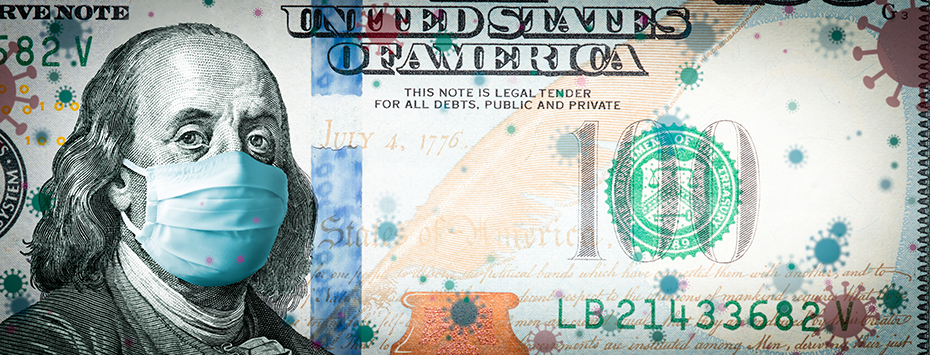COVID-19’s Potential Consumer Spending Impact in Auburn-Opelika, Mobile and Birmingham April 2, 2020
David Mixson

“On the positive side, this outbreak could be the impetus needed for elected officials to pursue more stable revenue sources to be better prepared for the next unforeseen or foreseen economic downturn”
For many communities across Alabama, the economic consequences of the COVID-19 pandemic have been wildly speculative. While some segments of the economy are thriving, including grocery retailers and food delivery services, others such as retailers and personal care businesses have shut down.

David Mixson
While we won’t know the outbreak’s actual impact to state and local economies for some time, a recently released forecasting model developed by the economic research firm, Impact DataSource, predicts the Auburn-Opelika area could see an annual consumer spending decrease of $373 million, or 10.3%. Impact DataSource’s “Consumer Spending During A COVID-19 Lock Down” model uses data from the Bureau of Labor Statistics (BLS) Consumer Expenditure Survey and assumes a three-month lock down and a five-month recovery. The hardest hit categories in the Auburn-Opelika include transportation, with an estimated reduction in spending of $582 million, restaurants at $230 million, entertainment at $215 million and apparel at $125 million.
Categories with increased consumer spending include groceries at $186 million, healthcare at $83 million, and utilities at $68 million.
According to Auburn University’s Government and Economic Development Institute’s Associate Director David Mixson, “Supporting locally owned restaurants and retailers is crucial since the model doesn’t account for the thousands of Auburn students that have returned home.” The outbreak could contribute to lower reported area population numbers should fewer students complete the 2020 Census and identify Auburn as their residence. “Our area governments could face both short-term reductions in sales tax collections and long-term reductions in federal funding associated with the virus and population decreases, necessitating tough financial decisions.”
Other parts of the state will see even higher reductions in consumer spending. Assuming the same three-month lock down and five-month recovery period, the Mobile metro area’s annual consumer spending could decrease by almost $1 billion, while the Birmingham-Hoover area could see a $2.75 billion reduction.
“On the positive side, this outbreak could be the impetus needed for elected officials to pursue more stable revenue sources to be better prepared for the next unforeseen or foreseen economic downturn,” Mixson added.
For more information on impacts to the local area and other metropolitan, visit: https://covid.impactdatasource.com/
ABOUT GEDI: As a part of University Outreach, the Government and Economic Development Institute's mission is promoting effective government policy and management, civic engagement, economic prosperity, and improved quality of life for the State of Alabama and its communities. GEDI is an Economic Development Administration University Center.
David Mixson serves as Associate Director of the Government & Economic Development Institute at Auburn University. He has over 20 years of university-based management experience in the field of economic development serving organizations, governments, and businesses. He can be reached at (334) 844-3887 or mixsoad@auburn.edu.
Last Updated: March 21, 2022

